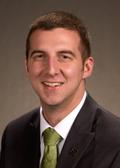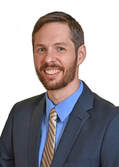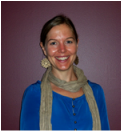History.
The historical development of neuroscience-informed cognitive-behavior therapy was described in The Thoughtful Counselor Podcast.
Research team.
Neuroscience-Informed Cognitive-Behavior Therapy (n-CBT) is being developed and researched by the following individuals:

Eric T. Beeson, Ph.D., LPC, NCC, ACS, CRC is a Professor at Marshall University. Dr. Beeson has 10 years of experience in the mental health field in a variety of settings, including a residential treatment facility for youth, an outpatient community mental health and substance use treatment center, state and independent vocational rehabilitation providers, an inpatient behavioral health unit, and a private practice. He is currently the Associate Editor of the neurocounseling section of the Journal of Mental Health Counseling, and a member of the Neuroscience Interest Network of the Association for Counselor Education and Supervision (ACES) and the Neurocounseling Interest Network of the American Counseling Association (ACA). He was a chapter author of the first text that the American Counseling Association has published on neuroscience, entitled Neurocounseling: Brain-Based Clinical Approaches. Dr. Beeson blends his extensive training in cognitive behavioral therapy from the Rational Living Therapy Institute with his passion for neuroscience and neurofeedback while conceptualizing, writing, and presenting on neuroscience-informed cognitive behavioral therapy.

Thomas A. Field, Ph.D., LMHC, LPC, NCC, ACS is an Associate Professor at Oregon State University and in private practice. He has been working with clients since 2006 years in a variety of settings, including child and adult inpatient psychiatric units, outpatient community mental health agencies, private practice, and school settings. He serves as the Associate Editor of the neurocounseling section of the Journal of Mental Health Counseling and is Chair of the AMHCA Neuroscience Interest Network. He is also currently a member of the ACES and ACA Neuroscience and Neurocounseling Interest Networks. He served as co-editor and chapter author of the first text that the American Counseling Association has published on neuroscience, entitled Neurocounseling: Brain-Based Clinical Approaches. He is the author of peer-reviewed publications in Journal of Mental Health Counseling, the International Journal of Play Therapy, and The Professional Counselor. He has presented over 50 times at national, regional, and state-level conferences. His dissertation on the implementation of Dialectical Behavior Therapy for adolescents in an inpatient psychiatric unit received the 2013 Dissertation Research Award from the AMHCA Foundation.

Laura K. Jones, Ph.D., MS, ACS is a Associate Professor at the University of North Carolina at Asheville. Her research, clinical and pedagogical interests lie in the confluence of neuroscience and counseling, with specific interests in the neuroscience of trauma and recovery. She has professional experiences conducting functioning Magnetic Resonance Imaging (fMRI) research, has presented at numerous state, regional, and national conferences on the integration of neuroscience into counselor preparation and practice, and has co-authored publications and book chapters detailing the application of neurophysiology to clinical mental health counseling and trauma and crisis intervention. Dr. Jones currently serves as the Chair of the recently founded Association for Counselor Education and Supervision (ACES) Neuroscience Interest Network and Co-Editor of the monthly column in Counseling Today entitled Neurocounseling: Bridging Brain and Behavior. She served as co-editor and chapter author of the first text that the American Counseling Association has published on neuroscience, entitled Neurocounseling: Brain-Based Clinical Approaches.

Raissa Miller, Ph.D., LPC is an Associate Professor at Boise State University. She is a member of the ACES and ACA Neuroscience Interest Networks. Dr. Miller has worked with individuals across the life span in agency and private practice settings, applying principles of interpersonal neurobiology to address a wide range of developmental and clinical concerns. In addition to completing doctoral training that included a specific focus on neuroscience and counseling, Dr. Miller completed a 92-hour training in Interpersonal Neurobiology through the Mindsight Institute. She has presented over a dozen presentations on the topic of neuroscience and counseling and is the first author on two neuroscience-related publications in press for the Journal of Mental Health Counseling. Dr. Miller’s research interests include understanding the impact of integrating and teaching principles of neurobiology to students, practitioners, and clients, and developing outcome-based research initiatives in clinical practice settings.
